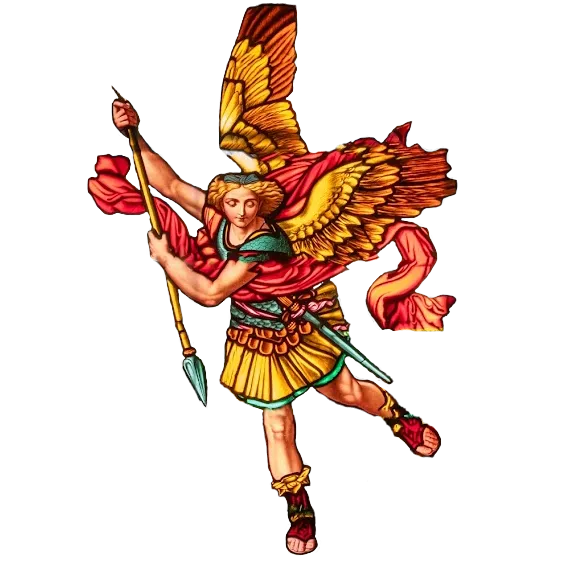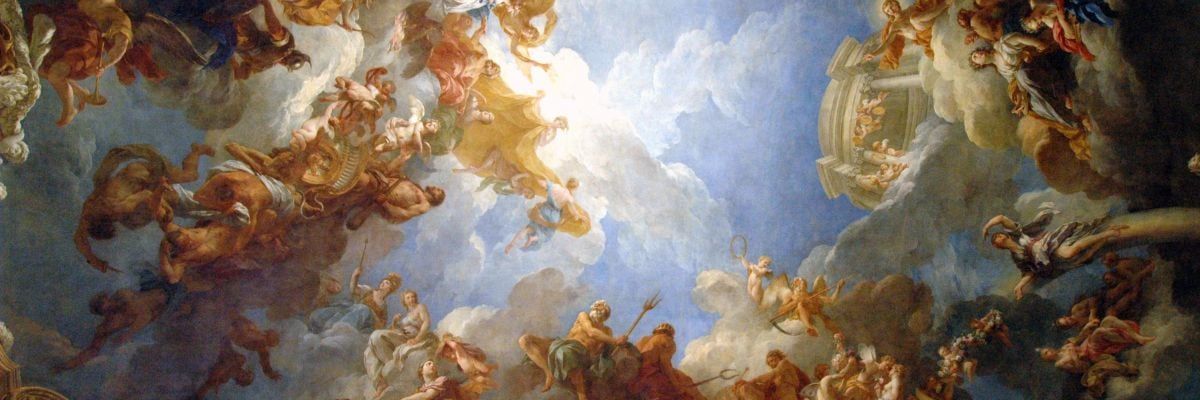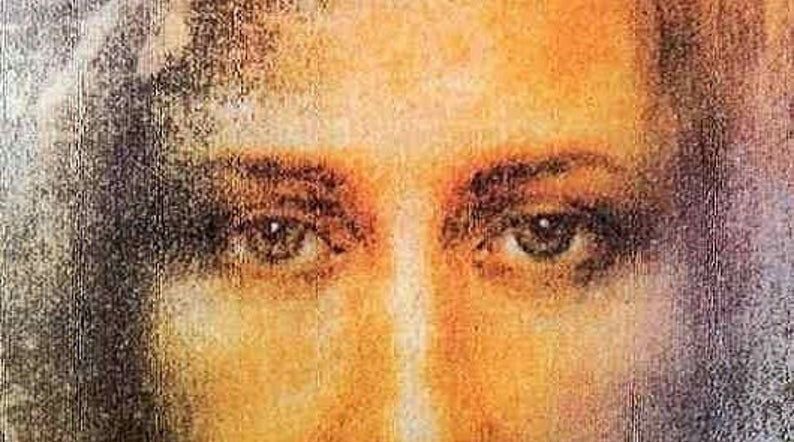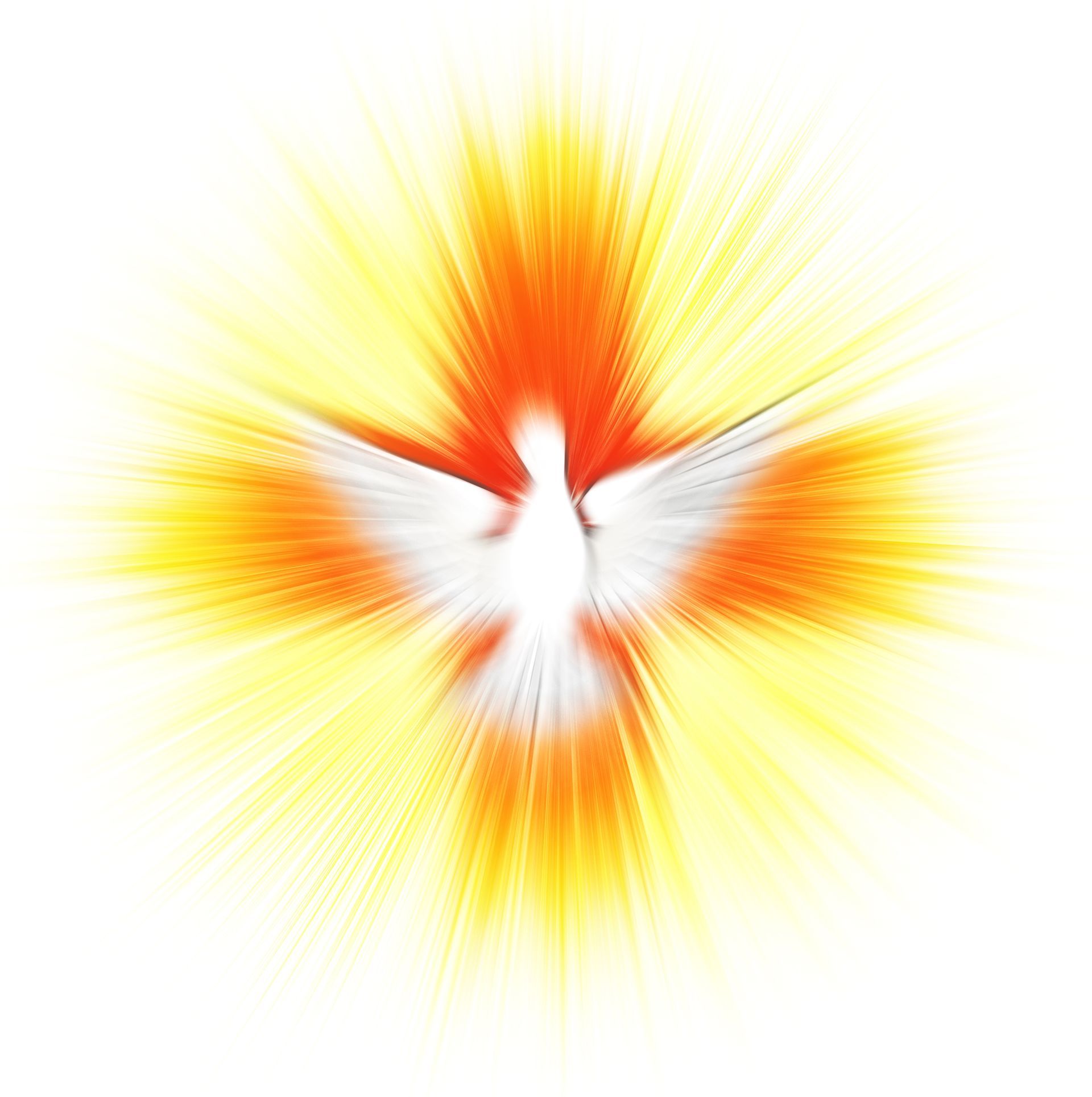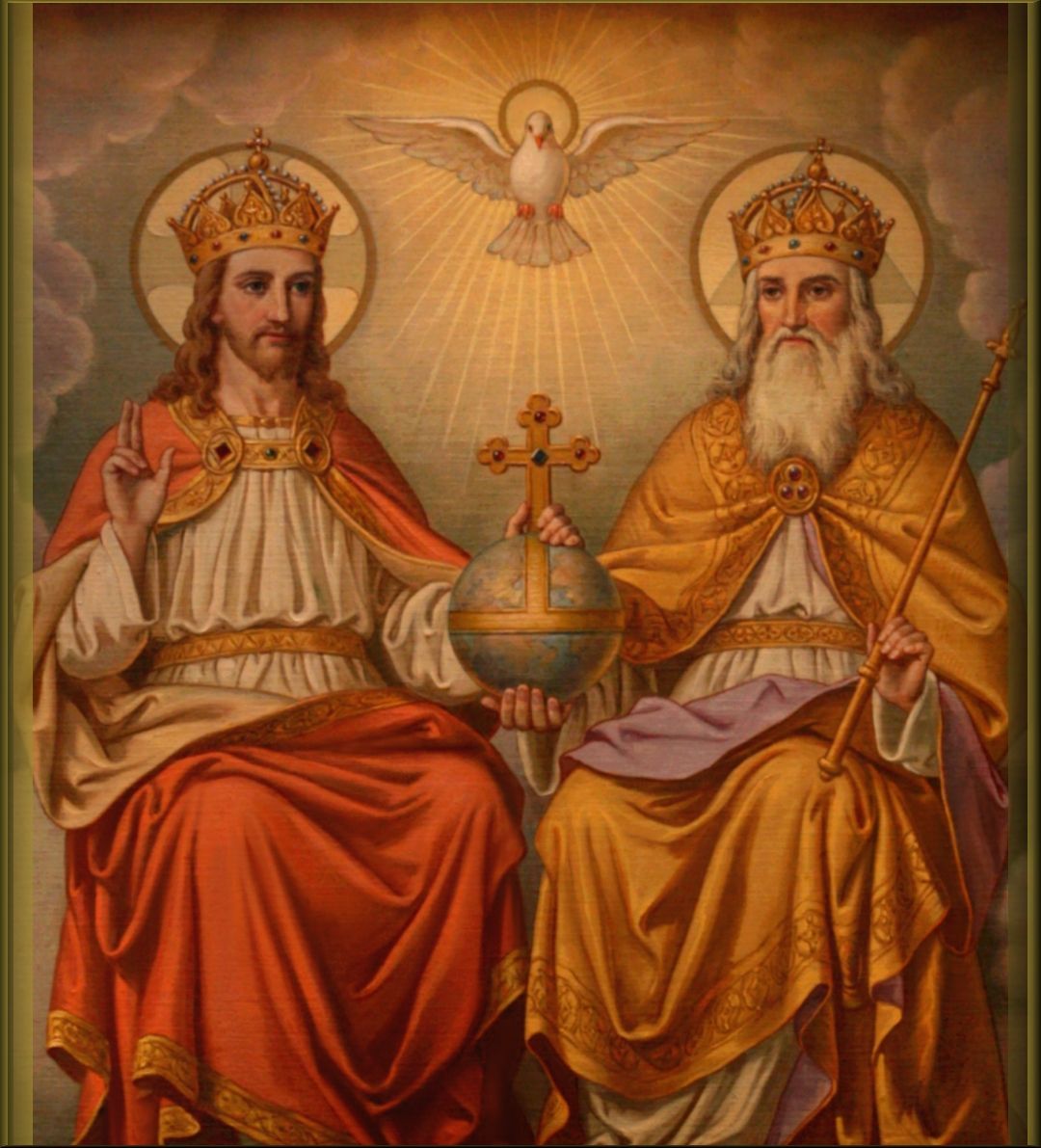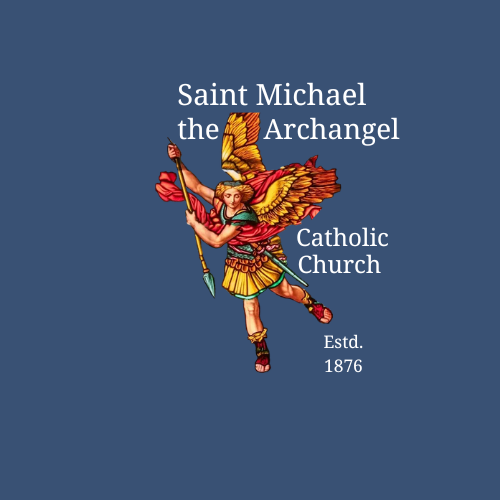Solemnity of the Most Holy Trinity
The Solemnity of the Most Holy Trinity is celebrated on the Sunday following Pentecost Sunday.
This year, it falls on Sunday, May 31st, 2026
Solemnity of the Most Holy Trinity
The Blessed Trinity is the mystery of one God in three Divine Persons and it is the central mystery of our Christian faith and life.
We call it a mystery because it cannot be understood by reason alone. God reveals himself as Father, Son and Holy Spirit. God has made it known to us.
-from United States Catholic Catechism for Adults
The Solemnity of the Most Holy Trinity was introduced in the ninth century and was only inserted in the general calendar of the Church in the fourteenth century by Pope John XXII. But the cultus of the Trinity is, of course, to be found throughout the liturgy. Constantly the Church causes us to praise and adore the thrice-holy God who has so shown His mercy towards us and has given us to share in His life.
The solemnity of the Most Holy Trinity may well be regarded as the Church's "Te Deum" of gratitude over all the blessings of the Christmas and Easter seasons; for this mystery is a synthesis of Christmas, Epiphany, Easter, Ascension and Pentecost.
("Te Deum" is a Latin hymn that praises God as the supreme Lord, Father, Son, and Holy Spirit. It is used in the Liturgy of the Hours and has a plenary indulgence for reciting it on the last day of the year."
This solemnity, which falls on the first Sunday after Pentecost, should make us mindful that actually every Sunday is devoted to the honor of the Most Holy Trinity, that every Sunday is sanctified and consecrated to the triune God.
Sunday after Sunday we should recall in a spirit of gratitude the gifts which the Blessed Trinity is bestowing upon us. The Father created and predestined us; on the first day of the week He began the work of creation. The Son redeemed us; Sunday is the "Day of the Lord," the day of His resurrection. The Holy Spirit sanctified us, made us His temple; on Sunday the Holy Spirit descended upon the infant Church. Sunday, therefore, is the day of the Most Holy Trinity.
—Excerpted from The Church's Year of Grace, Pius Parsch
All Christians are baptized in the name of the Father and of the Son and of the Holy Spirit. By the grace of Baptism, we are called to share in the life of the Blessed Trinity, here on earth in the obscurity of faith, and after death in eternal light. The Trinity enlightens all the other mysteries of faith.
-United States Catholic Catechism for Adults
The Most Holy Blessed Trinity
God
The belief in one God comes to us through our Jewish ancestry. One of the primary prayers in the Jewish faith is taken from the Book of Deuteronomy:
“Hear, O Israel! The Lord is our God, the Lord alone! Therefore, you shall love the Lord, your God, with your whole heart, and with your whole being, and with your whole strength.”
God revealed himself to the Chosen People as the one and only God.
Jesus Christ
Our Christian belief that there are three Divine Persons in one God came later, as it was revealed by the life and words of Jesus Christ. The Apostles came to understand that Christ was God.
“No one has ever seen God. The only Son, God, who is at the Father’s side, has revealed him.” John 1: 18
Holy Spirit
The Apostles later came to know and understand that the Holy Spirit was also God. In the Gospel of John, Jesus says,
“When the Advocate comes whom I will send you from the Father, the Spirit of truth that proceeds from the Father, he will testify to me.“
Before the Passion, Jesus promised to send the Holy Spirit as teacher, guide, and consoler.
The appearance at Pentecost and at other events in the New Testament gives ample evidence of the Holy Spirit as the third Person of the Trinity.
-United States Catholic Catechism for Adults
The Doctrine of the Trinity includes Three Truths of Faith
The Trinity is One
We do not speak of three gods, but of one God. Each of the Persons is fully God. They are a unity of Persons in one divine nature.
The Divine Persons are distinct from each other.
Father, Son, and Holy Spirit are not three appearances or modes of God, but three identifiable persons, each fully God in a way distinct from the others.
The Divine Persons are in relation to each other.
TThe distinction of each is understood only in reference to the others. The Father can not be the Father without the Son, nor can the Son be the Son without the Father. The Holy Spirit is related to the Father and the Son who both send him forth.
-United States Catholic Catechism for Adults
Blessed Holy Trinity
The Most Holy Trinity is one God in three divine Persons. The Father is God, the Son is God, and the Holy Spirit is God, and each is of the same divine "substance", "essence," or "nature." ...DISCOVER MORE



